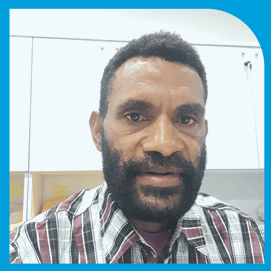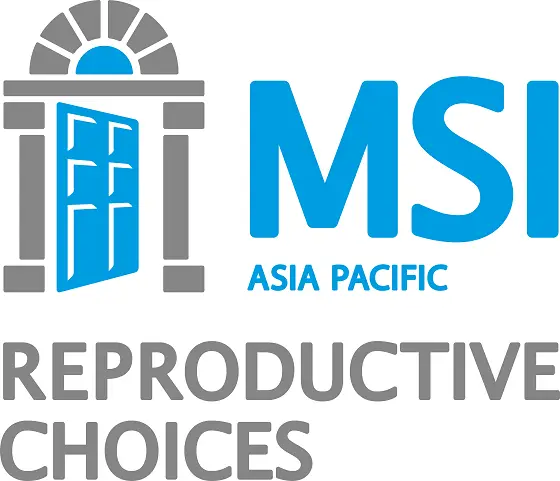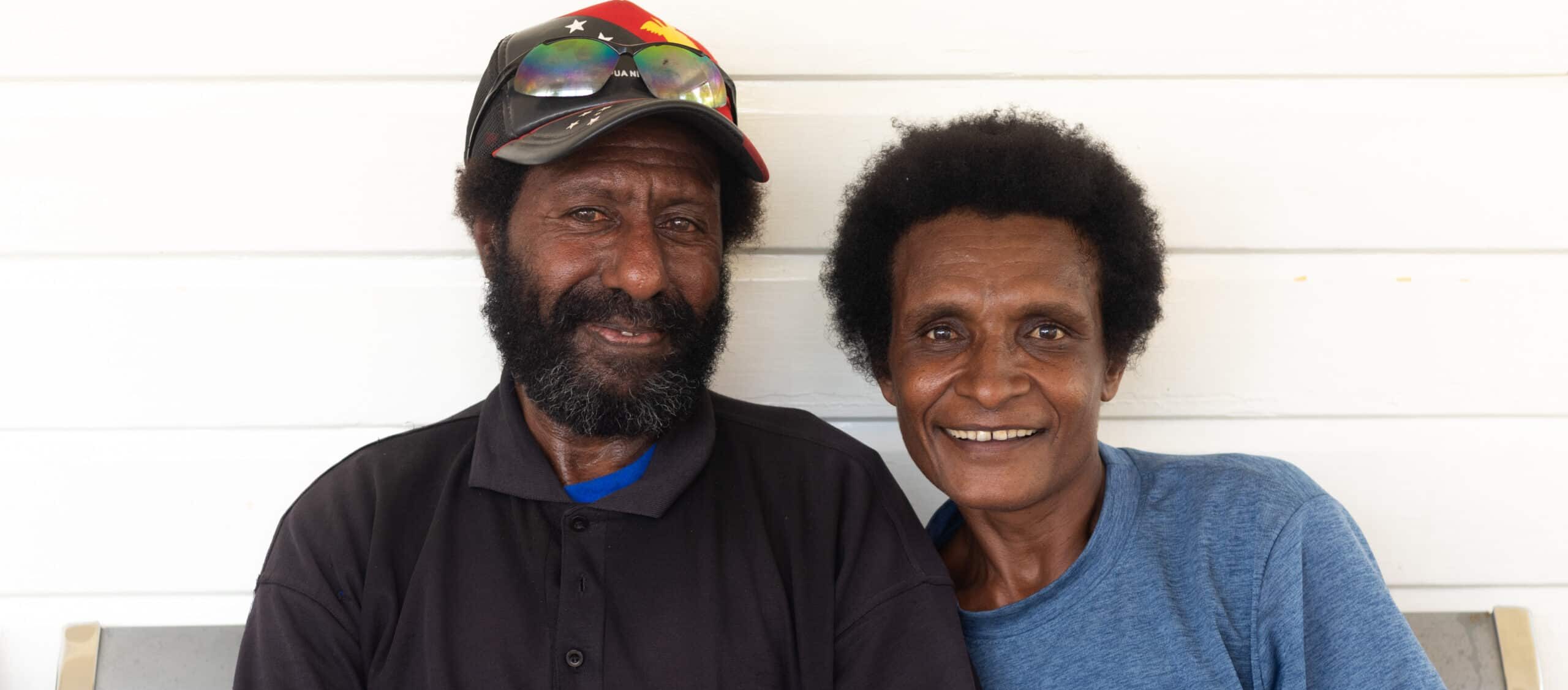Edward Karapen is MSI Papua New Guinea’s Sexual and Gender-Based Violence and Inclusion Mentor. Here, he gives us a glimpse into MSI’s work supporting survivors of gender-based violence through reproductive healthcare.
I live and work in Papua New Guinea, where 3 out of 4 women will experience sexual and gender-based violence (SGBV). Men’s violence against women is commonplace.
This crisis reaches across our Asia Pacific region, where rates of SGBV soar well above the global average of 27%. Of course, any percentage point is devastating. And statistics can only tell us so much about this complex and under-reported issue.
While we must urgently reshape the cultural and social norms that normalise men’s violence against women, we’ve also got to deal with what’s at hand: SGBV survivors need support. That’s why I do the work that I do, as MSI Papua New Guinea’s Sexual and Gender-Based Violence and Inclusion Mentor.
November 25 marks the beginning of a global 16 days of Activism Against Gender-based Violence. Taking place every year, it’s a campaign to raise awareness and demand action to eliminate men’s violence against women. I know that confronting sexual and gender-based violence is heart-breaking, in a world already brimming with bad news, so I’m going to take this opportunity to tell you about something uplifting. It’s a programme called RESPOND that’s being delivered in partnership with the International Planned Parenthood Federation (IPPF) across 22 countries in the Asia Pacific region to support women and girls, and in just a year it’s helped around 25,000 SGBV survivors.
Let’s go back to 2020 for a moment, when COVID-19 was cutting off women’s access to sexual and reproductive healthcare and lockdowns had sparked a frightening rise in SGBV. Seeing the urgent need, the Australian government partnered with organisations like MSI Reproductive Choices and IPPF to increase access to support and services. Australia’s Department of Foreign Affairs and Trade (DFAT) are funding the RESPOND project, under the Indo-Pacific Sexual and Reproductive Health and Rights COVID-19 Response, to deliver high-quality and equitable sexual and reproductive healthcare, with an added focus on supporting SGBV survivors.
My work in Papua New Guinea (PNG)
The RESPOND programme helps me do my job supporting survivors through MSI’s services. With high SGBV rates in PNG, there was a missing link between reproductive healthcare and services supporting survivors—and I’m here to bridge that gap.
Frontline sexual and reproductive healthcare providers are often the first person someone will disclose their experience of violence to. During appointments, we give women an opportunity to talk about vulnerable, personal and intimate experiences and choices. It might be a survivor’s only chance to talk to someone about it. So, we need to ensure we’re prepared to respond with compassion and support.
Each week, I travel across the country to mentor MSI healthcare providers, so they know how to identify and support survivors. My focus so far has been working with our outreach teams who travel into hard-to-reach and rural communities.
My colleagues are busy medical professionals who haven’t always had specific training to provide tailored care for SGBV survivors. I teach them to ask the right questions at the right times. I help build referral networks of local services so we’re able to refer our clients to specialist support when they need it (like legal or mental health support). I’m also working on referral pathways for people who may need specific types of support, like people living with disabilities.
My goal is that when a client discloses an experience of violence, our providers can confidently respond in a survivor-centred and empathetic way. On top of providing medical care like emergency contraception and HIV testing, we can offer referrals to further support, provide our clients with choices and support them to carve their own pathway to healing.
But a major barrier to this work is the shame and stigma that keeps many women from sharing their experiences and seeking support. That’s why we’re also running community campaigns to challenge the cultural norms that perpetuate violence and smash the stigma around asking for help.
Strengthening public sector referral systems in Bangladesh
While my work is based in PNG, my global MSI colleagues and I consistently share what we’ve learned with each other. I hear of amazing work happening across the region to support SGBV survivors.
My colleagues in Bangladesh shared the state of play there: rates of child marriage are high, with 59% of girls marrying before age 18, and during COVID-19 they saw a 24% rise in reports of SGBV.
The team trained four ‘SGBV master trainers’ who upskill reproductive healthcare teams across the countries (including staff working for the national public sector) so they can identify and support survivors.
In the first year, they trained over 100 government ‘Family Welfare Visitors’ who helped people like 18-year-old Sarika (name changed). When Sarika visited her nearest government-run health centre, the Family Welfare Visitor noticed unusual bruises on her body. Having been trained by one of MSI Bangladesh’s master trainers, she was able to offer a safe space and support when Sarika told her that her husband is often physically violent towards her.
The provider knew the pathways and resources to share with Sarika, including where she could get legal help should she want it, and how a local SGBV specialist organisation could further support her.
A contact centre in Nepal
Over in Nepal, they’ve been adding capacity to their contact centre (amongst other crucial SGBV response-building work). All MSI Nepal’s contact centre staff have now completed training on identifying and supporting survivors of SGBV.
This meant they were prepared to help people like Kusum (name changed). Beaten by her husband and threatened with weapons, Kusum felt unsafe and unsure of what to do. When she heard about MSI’s contact centre on the radio she decided to call for advice. The counsellor on the line had the tools and skills to realise she was at high risk and help her create a safety plan, including letting her know where she could report the violence and how she could access further help.
For women living in a male-dominated society, leaving an abusive relationship can be difficult. Attempting to leave can be very dangerous for survivors and it’s a critical time for them to use information and safety plans from providers such as MSI’s contact centre staff. These phone calls can save lives.
These examples give you a glimpse into the work across our region, made possible through RESPOND. All 37 country programmes across our MSI partnership are responding to SGBV in their own contexts and building referral networks to support our clients. We take this seriously because it’s a huge responsibility when a survivor trusts us with their story. We have a duty of care; we must be able to help.
With this platform I have today, I want to thank the Australian government for their partnership and funding to make these impacts possible, and my MSI colleagues who are some of the most compassionate and hard-working people I know.
And to leave you with a final thought, let me tell you about how I’m the only son amongst five sisters. All my life I have seen how girls and women are strong, smart, and shaping our families and communities for the better. Men need to share our power and let women make their own decisions, and we need to champion gender equality within our own families. We must end this violence. With safety, bodily autonomy, education, and opportunity, I know how women and girls can flourish – and that benefits us all.
#WomensRights4Health #CSurge #AustralianAid #16DaysOfActivism
Pictured below: Edward Karapen, MSI Papua New Guinea’s Sexual and Gender-Based Violence and Inclusion Mentor


